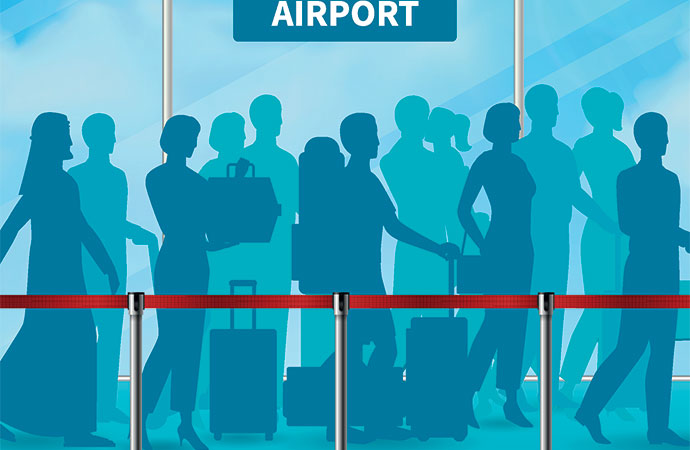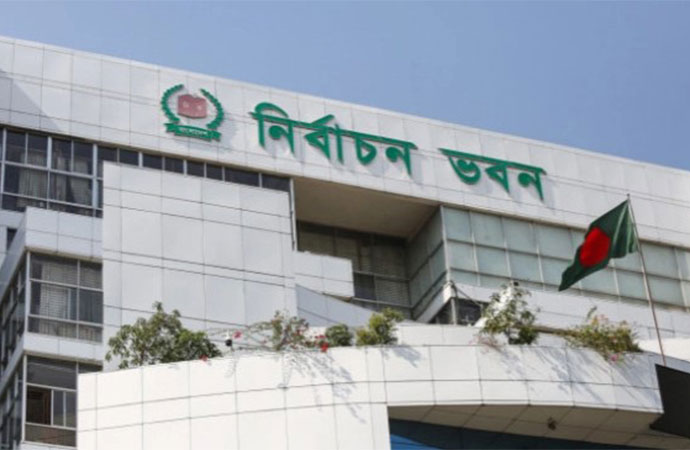Column

Freepik
As I wrote in a recent column, I returned to Bangladesh this year after an absence of more than four decades. When I had been there last, in 1984, I had been an Indian citizen. I am a Singapore citizen now. But it is the same me. And dare I say this? It is the same Bangladesh.
When I walked out of the arrival hall of Dhaka's Hazrat Shahjalal International Airport at the end of January this year, I saw a group of little girls and boys milling around and near the exit door. They carried bouquets in their tiny hands and chattered excitedly among themselves, obviously awaiting the appearance of prized persons. I asked the man accompanying me who the lucky people were. He replied: "Bangladeshis returning to Bangladesh."
Many of the returning Bangladeshis were coming back home from a religious pilgrimage. The airport's arrival hall was crowded with them. They were happy, and indeed beaming, because they had crossed a religious milestone on the way to eternity. I was happy for them. However, my Biman flight from Singapore had also been full of people travelling to Bangladesh during a break in their secular journey made to seek a good life abroad, or returning home for good. I wondered if at least some of the children waiting outside the airport could be doing so to welcome back working grandfathers, fathers, uncles and brothers who could be returning to Bangladesh on a vacation or for good.
I do not know. I did not stay long enough to ask the children.
I hope that some of the Bangladeshis returning to Bangladesh were workers whose labour sustains the economies of foreign lands, from the Americas and Europe to the Middle East and Southeast Asia - everywhere actually. Whether or not Bangladesh figures highly as a diplomatic interlocutor in those lands and their countries, Bangladeshis do. They help to build the gilded towers of Dubai and the public housing of Singapore. They fill the economic gaps between demand and supply, in an America and Europe in demographic decline, by providing the props of the informal economy that makes goods and services more cheaply available to native Americans, Britons, French, Italians, Spaniards and much about everyone else.
Bangladeshis do not survive at the mercy of the foreign economy
The interstices of the foreign economy exist because of their labour, their capacity to serve unknown people in other lands because of labour overcapacity in their own known and beloved country.
Hence, when workers abroad return to Bangladesh, whether for a month or a year or forever, they deserve to be greeted with roses as ardent as love, lilies as pious as faith, marigolds as happy as a newborn child and, most of all, with the garlanding smiles of their grandchildren, children and siblings. These are the members of the families who have not forgotten them for a single and everlasting Bengali moment.
Other kinds of return
There are other kinds of return as well. I have in mind intellectuals and professionals who carry the Bangladeshi flag to other lands. From Medicine and Computing to Literature and Philosophy, from Economics and Politics to Sociology and Psychology, the Bangladeshi professional occupies pride of place in many fields of excellence at universities and institutes around the world. Many expatriate professionals do not return physically and permanently to Bangladesh, at least during their working lives, because they and their families have settled abroad, but they belong instinctively to the land of their birth and upbringing.
They intervene in public debates through newspapers and journals; their voices are heard and their opinions are registered on television talk shows and social media channels. In a sense, the expatriate Bangladeshi intelligentsia represents an ideational expansion of Bengal's physical place in the world.
The Bangladeshi intelligentsia thereby illustrates the profound simplicity of the title of Amartya Sen's autobiography, At Home in the World. Sen, an Indian, was born in undivided Bengal in 1933. Like him, Bangladeshi intellectuals today are at home in Bengal abroad. Their return home is a mental one and does not need expensive airline travel or packing the travel bags. Their bags are already packed - with themselves.
Public intervention, I argue, is a perpetual return from voluntary or involuntary intellectual exile. Unlike the expatriate Bangladeshi workers who packed the Biman flight from Singapore to Dhaka with me, these workers of the mind are relatively free of the economic exigencies that drive Bangladeshis to seek employment abroad. Yet, they never manage to escape the Bangladeshi Condition - the condition of being a Bengali (or other kind of Bangladeshi) the rhythms of whose heart are tied to the soil and seasons of Bangladesh.
I could mention many such intellectuals, but to mention even ten would be to not mention hundreds whose work abroad enriches Bangladesh's reputation as being home to the world of ideas. No one can teach Bangladeshis the meaning of internationalism: One is born an internationalist in Bangladesh.
Hence, to return home may well mean remaining abroad.
However, should they return, I hope that they would be received with bouquets and garlands in Dhaka or elsewhere. It does not matter what the colours of the flowers are. The point is to welcome back those who never left in the first place. What matters is that there should be Bangladeshis who recognise expatriates as their distant own who are returning to the inherited and shared space of green and golden Sonar Bangla.
The writer is Principal Research Fellow of the Cosmos Foundation. He may be reached at epaaropaar@gmail.com

























Leave a Comment
Recent Posts
Pedaling Through the Mangroves ...
The journey from the bustling streets of Barishal to the serene, emera ...
Why the Interim Government mus ...
Two weeks out from what is expected to be a red letter day in the figh ...
Doesn’t matter who thinks what about Bangladesh deci ..
The Other Lenin
US President Donald Trump said his administration
Govt moves to merge BIDA, BEZA, BEPZA, MIDA